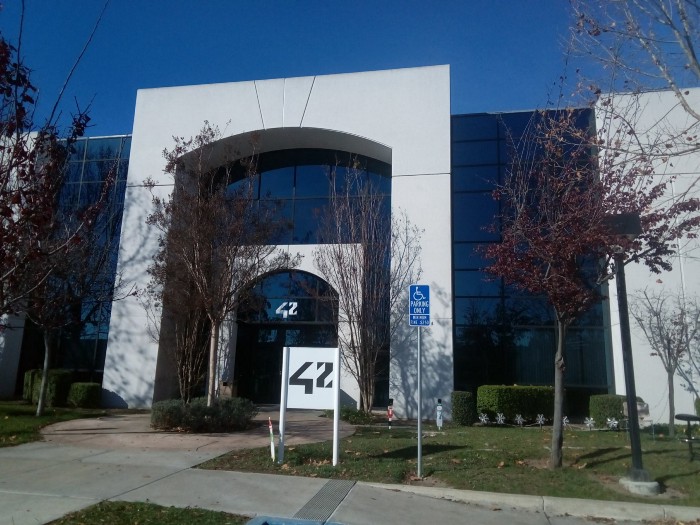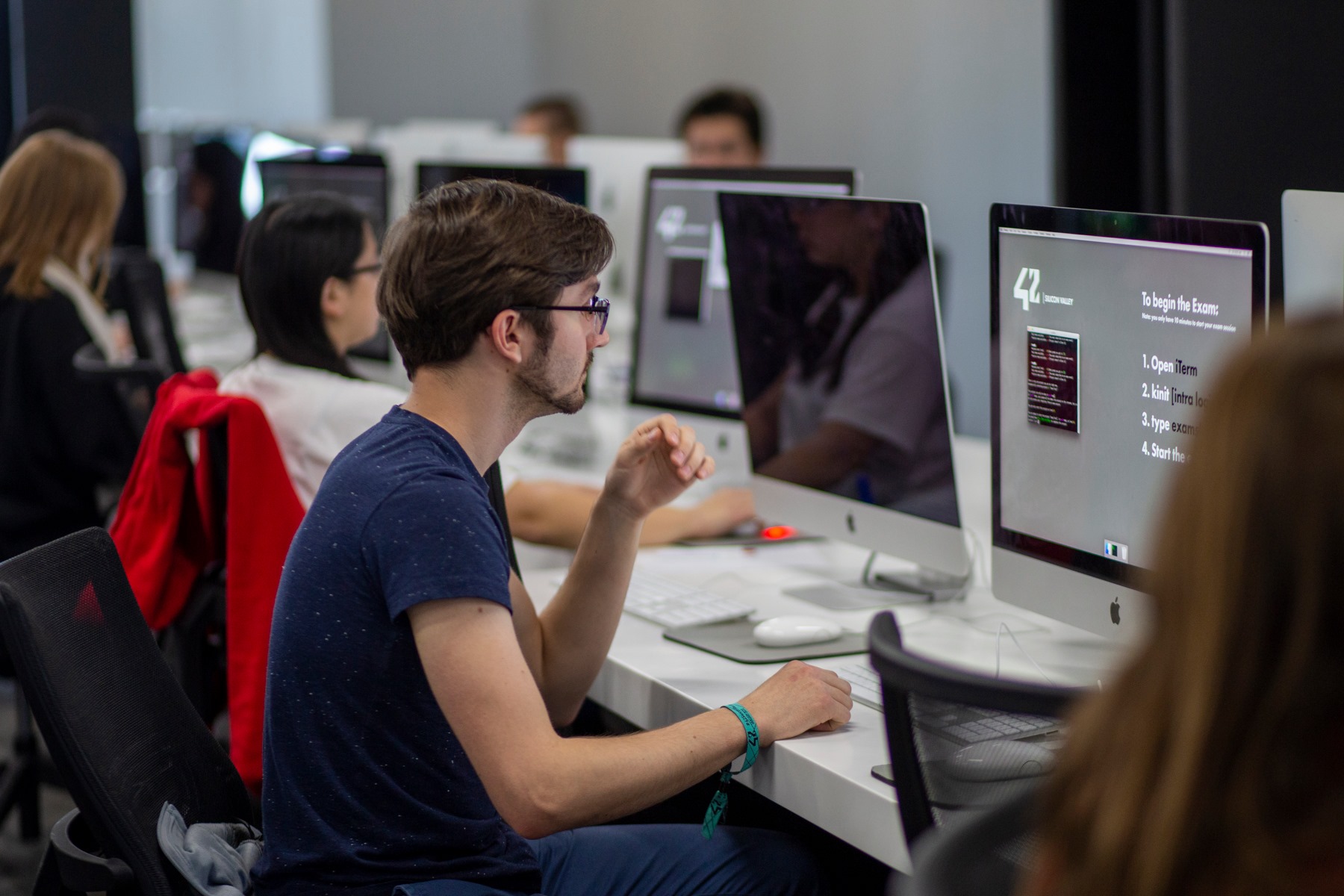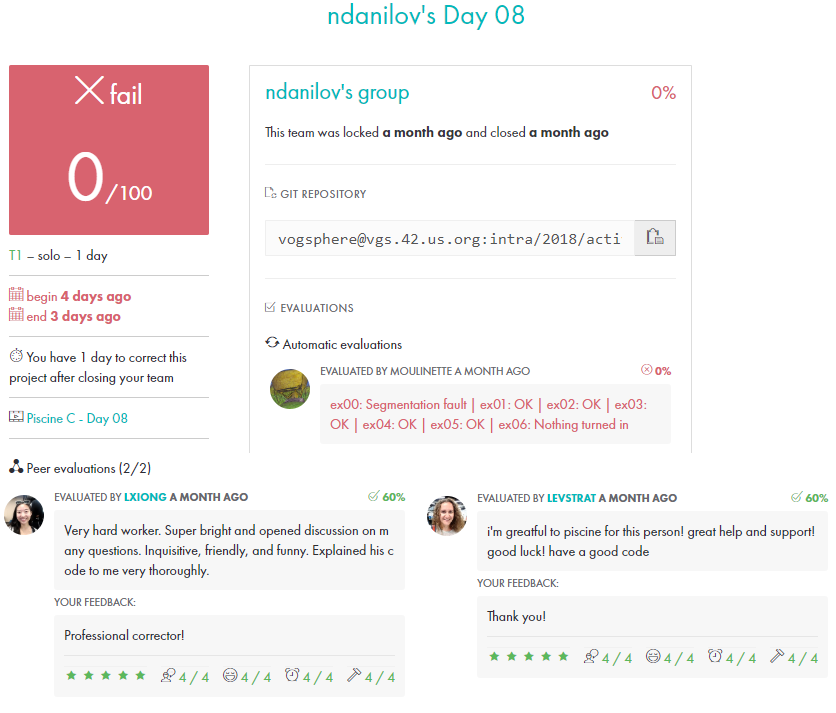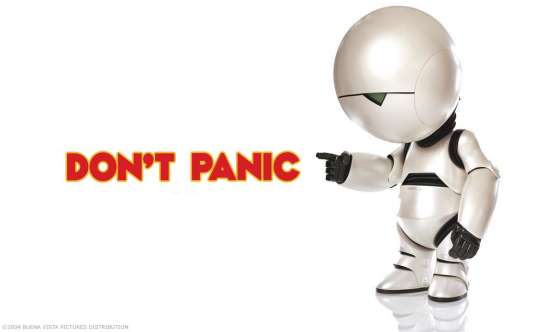Putting it all Together

Maybe the beginning of your coding journey.
So what now?
So, now you know what to expect in regards to what the Piscine covers but there are still some more things that need to be addressed. Exams, projects, and other things. This will be a bit verbose, feel free to skip past everything after the Norminette & Moulinette section as that's just more meta things about 42 Silicon Valley and the Piscine in general.
Exams and group projects
There are group projects which require collaboration, as well as making the person who is the 'least experienced/weakest' answer for everyone's code and you'll be graded based on that person's explanation for example. From people I've talked to and reading, only 10-20% of people "pass" most exams, and even fewer pass group projects. Some past Pisciners have put more focus on their solo assignments than group projects. I'm not sure if that's the best way to do it, but at least make sure you aren't falling behind on your assignments first might be best.
There are about three group projects, three solo projects and four exams. The exams at the main 42 Paris campus are different, you do not get instructions on how to even start the exam, so many people fail the first one. At 42 Silicon Valley, I've heard from students that so many people failed that they had to change policy and now have the exam login instructions as the desktop wallpaper background. Don't forget to sign up for the exams!

1. Open iTerm 2. kinit [intra login] 3. Type examshell 4. Start the exam
The Norm & Moulinette
The Norminette is 42 Silicon Valley's coding standards. At every job, project, programming language, there are certain conventions such as camelCase or snake_case, tabs vs. spaces, two or four spaces. At 42 Silicon Valley, it's very specific and you must abide by all rules or you will get a 0 for that assignment, project, or exam.
There are a couple of things before you read what the standard is. Keep in mind, all of these rules are good rules for the most part but taken all together, it can be very limiting and create bad habits. So my advice is to learn and understand the norm but dont form your programming habits around it strictly when coding for non-related 42 things. Link to the Norminette pdf.
So if the Norminette checks your code for spelling and grammar errors, the Moulinette grades the actual content of your work. The Moulinette is notorious for being fickle and the staff at 42 Silicon Valley say that it has the final say. So if you have a small bug or you get the desired end result but Moulinette gives you a 0, you get a zero.
There are Github repos of people who claim to have gotten a working version to test for assignments, but it may or may not work. Also with the curriculum update, it will not work with some things most likely. Use at your own risk. A sidenote, since 42 Silicon Valley is based on Epitech, it's very probable that these rules were in place specifically for ease of testing, as well as the coding conventions & standards back in the 90s but that's just my speculation.

Code review and group projects. Awesome things to be exposed to while learning.
What are they looking for?
Well, we can make an educated guess based on how their school is structured: They require people to teach themselves as well as teach each other. If you're not compatible with this type of pedagogy or you're anti-social, you probably won't be accepted since, if they accepted people like that en masse, it would be an unsustainable model and it wouldn't last long. So the people that they pick tend to have a couple of qualities that overlap:
- They don't give up easy
- They see things through to the end
- They're somewhat sociable
- They can work with others
- They're resourceful
Interesting enough, that's what is required to be a developer in the job market: You have to teach yourself new things, be good under pressure, have good time management skills and you can communicate clearly with others. In my honest opinion, the top people in the Piscine would succeed regardless of 42, especially since a lot of these types of people have STEM backgrounds but maybe haven't ever programmed before. While I don't want to necessarily fall into survivorship bias, I'm just looking at the type of people who were selected and giving a possible reason as to why.
How can you be one of those people? A couple of past students have told me that since they monitor your login location, as anyone can see who is logged in where at the lab, it's good to move seats a lot, sit near other people and try to make friends with everyone. At 42 Paris, there's even a day or two where you get to select two other Pisciners who you believe deserve to get in. I don't think there's anything like that in 42 Silicon Valley, but it does show that being social is a possible metric. One more thing is the time you spend in the labs. Most people have suggested spending at least 8 hours, just purely logged in and working every day as another possible metric.

TL;DR Be social, put in the hours & work, most importantly don't give up and stick with it until the end.
Stress and time Management
Stress and time management is important. While most people who get accepted do not pass a majority of the assignments and tests, another metric to consider is how you spend your time while at the Piscine. You'll need to study, sleep, eat as well as talk to other people. There's even a specific day in the Piscine where, there's an assignment given out every hour, which was intentionally designed to make people burnout and fail the exam.

Straight from the horse's mouth.
I haven't put much emphasis on how hard the Piscine actually is: it's really difficult. The average person who gets accepted tends to put in a bare minimum of 8 hours a day, every day during the Piscine. Most people who are new to programming can spend 10-16 hours every day on average but everyone is different. The most important thing you can do during the Piscine: Don't give up, help others but also don't forget about yourself, sleep, eat well, be expected to fail a lot.
Keep in mind you shouldn't compare yourself to others during the Piscine; a better metric and one that they select for is total improvement. How much you've improved since the day before, since the start. So, if you have to compare yourself to something or someone, compare yourself to your past self from a couple days ago, or even at the beginning of the Piscine, because that's what you're really up against, constant improvement, learn from failures and growing despite them.

When learning to program, everyone will experience this.
Conclusion
Well, that's mostly everything that I think is important from many hours of listening, talking, and researching about 42 Silicon Valley. There's a good chance I might be wrong about some things so make sure to take everything here, with a grain of salt. Do your own research on top of mine, make your own decisions. If you do choose to do the Piscine, don't forget your towel and good luck!
